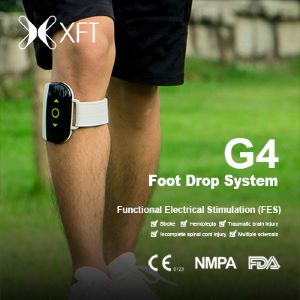Caregiver Needs
Care Partners in Dementia: Reported Needs and Intervention Satisfaction in the CaDeS Study Trial
Tuesday, October 31, 2023
12:10 PM - 12:16 PM
Location: Station 7

Alexandra B. Holland, LMSW
Psychological Associate
UT Southwestern Medical Center
Dallas, Texas, United States
Poster Presenter(s)
Research Objectives: Identify the needs/problems reported by dementia care partners and whether they think Problem-Solving Training (PST) can address these needs/problems.
Design: CaDeS is a randomized controlled optimization trial (NCT04748666).
Setting: Community.
Participants: Dementia care partners who completed follow-ups as of 5/15/2023.
Interventions: PST is a metacognitive strategy training intervention to help participants overcome challenges and achieve goals through a structured pattern of iterative steps. Participants in the CaDeS trial completed either 3 or 6 sessions with a trained interventionist, where they learned and applied the technique to self-selected goals/problems.
Main Outcome Measures: The types of needs/problems were selected by care partners during the intervention and coded by study staff. PST’s ability to address these needs was measured using self-reported mood and strain items from the Caregiver Relationship Questionnaire (CRQ; an ordinal scale of 1-5 with 1 indicating “much worse” and 5 indicating “much better” mood/caregiver strain post-intervention) and satisfaction items from the Client Satisfaction Questionnaire-8 (CSQ8; ordinal scale from 8-32 that measures consumer satisfaction with health and human services, with higher scores indicating higher overall satisfaction).
Results: Ninety-three care partners selected a total of 239 problems/goals (care partners could work on one problem for multiple sessions, so duplicates were not included). Problems were coded as focused on the care partner (n=164), care recipient (n=37), both (n=24), or other (n=14). Problem categories were also coded (e.g., health, managing care).
Ninety -four care partners completed the CRQ. Most care partners reported their mood (n=62; average 3.73 (±.70)) and caregiver strain (n=59, average 3.71 (±.70)) was “better” or “much better” post-intervention. Seventy-five care partners completed the CSQ8. With an average score of 26.91 (±4.30), care partners indicated overall satisfaction with PST.
Conclusions: Strengths of PST include the ability to address care partners’ unique needs related to caregiving as well as other general problems they encounter. Findings may inform interventions, and intervention leaders/facilitators, to be better prepared to address a wide variety of care partner needs.
Author(s) Disclosures: The CaDeS trial is funded by Texas Alzheimer's Research and Care Consortium (TARCC).
Design: CaDeS is a randomized controlled optimization trial (NCT04748666).
Setting: Community.
Participants: Dementia care partners who completed follow-ups as of 5/15/2023.
Interventions: PST is a metacognitive strategy training intervention to help participants overcome challenges and achieve goals through a structured pattern of iterative steps. Participants in the CaDeS trial completed either 3 or 6 sessions with a trained interventionist, where they learned and applied the technique to self-selected goals/problems.
Main Outcome Measures: The types of needs/problems were selected by care partners during the intervention and coded by study staff. PST’s ability to address these needs was measured using self-reported mood and strain items from the Caregiver Relationship Questionnaire (CRQ; an ordinal scale of 1-5 with 1 indicating “much worse” and 5 indicating “much better” mood/caregiver strain post-intervention) and satisfaction items from the Client Satisfaction Questionnaire-8 (CSQ8; ordinal scale from 8-32 that measures consumer satisfaction with health and human services, with higher scores indicating higher overall satisfaction).
Results: Ninety-three care partners selected a total of 239 problems/goals (care partners could work on one problem for multiple sessions, so duplicates were not included). Problems were coded as focused on the care partner (n=164), care recipient (n=37), both (n=24), or other (n=14). Problem categories were also coded (e.g., health, managing care).
Ninety -four care partners completed the CRQ. Most care partners reported their mood (n=62; average 3.73 (±.70)) and caregiver strain (n=59, average 3.71 (±.70)) was “better” or “much better” post-intervention. Seventy-five care partners completed the CSQ8. With an average score of 26.91 (±4.30), care partners indicated overall satisfaction with PST.
Conclusions: Strengths of PST include the ability to address care partners’ unique needs related to caregiving as well as other general problems they encounter. Findings may inform interventions, and intervention leaders/facilitators, to be better prepared to address a wide variety of care partner needs.
Author(s) Disclosures: The CaDeS trial is funded by Texas Alzheimer's Research and Care Consortium (TARCC).

.jpg)
